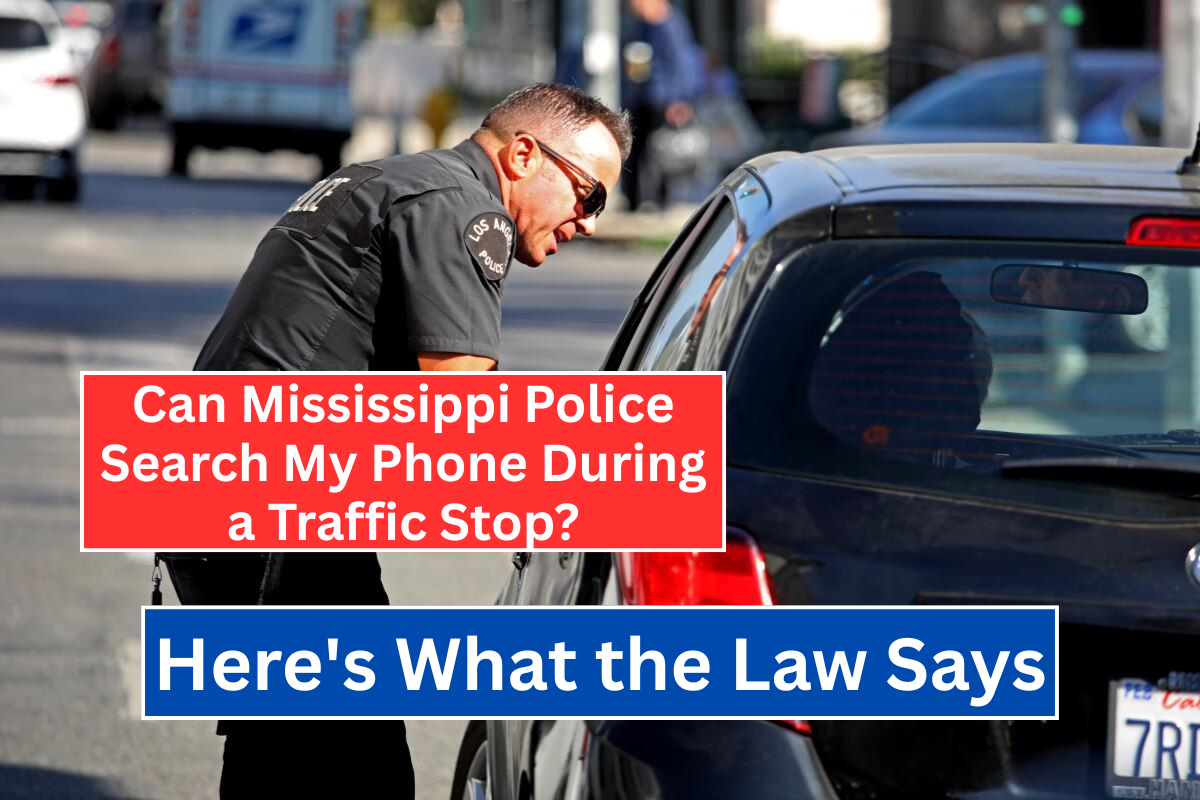In today’s digital world, our smartphones hold an enormous amount of personal information, from text messages and emails to photos, banking details, and social media accounts.
Given the sensitive nature of this data, it’s natural to wonder: Can a police officer in Mississippi search my phone during a traffic stop?
Here’s a breakdown of the legal rights and protections you have when it comes to phone searches during a traffic stop in Mississippi, as well as the constitutional principles at play.
The Fourth Amendment and Its Protection
The Fourth Amendment to the U.S. Constitution protects citizens from “unreasonable search and seizure,” meaning police officers generally cannot search your personal belongings, including your phone, without a valid reason.
This protection ensures that law enforcement can only search your person, vehicle, or property if they have probable cause or a warrant.
Can Mississippi Police Search My Phone Without Permission?
In Mississippi, as well as throughout the United States, police cannot search your phone during a routine traffic stop unless they have a valid legal reason.
According to the U.S. Supreme Court decision in Riley v. California (2014), police cannot search the contents of your smartphone without a warrant.
This case specifically addressed whether police could search a phone during an arrest, ruling that the data on a phone is too personal and requires special protection.
Consent to Search Your Phone
While police need a warrant or probable cause to search your phone, the exception is consent. If you voluntarily give the officer permission to look through your phone, they can search it without a warrant.
However, it’s important to note that you do not have to consent to such a search. You have the right to refuse and can simply say “I do not consent to a search”.
Can Police Force You to Unlock Your Phone?
Even if law enforcement seizes your phone during an arrest, they cannot force you to unlock it using biometric data such as fingerprint recognition or facial recognition.
The Riley v. California ruling made it clear that police cannot compel you to unlock your phone without a warrant. However, they can obtain a warrant that specifically authorizes them to access your phone using biometric features like your fingerprint or face.
Exceptions and Circumstances That Might Allow a Phone Search
While the general rule is that police cannot search your phone without a warrant, there are certain exceptions where the search might be justified, such as:
- Probable Cause or Arrest: If police have probable cause to believe that your phone contains evidence of a crime, they might be able to seize it. However, they would still need a warrant to go through the contents of the phone.
- Exigent Circumstances: In rare cases, if there is an immediate danger (e.g., a threat to public safety), police may be able to search the phone without a warrant, but these situations are usually limited and must be justified in court.
- Consent: As mentioned, if you voluntarily give the police permission to search your phone, they can do so without a warrant.
Key Points to Remember in Mississippi
- You can refuse consent for police to search your phone during a traffic stop.
- Police generally need a warrant or probable cause to search your phone.
- Riley v. California (2014) protects your phone from warrantless searches by police.
- Biometric unlocking (e.g., fingerprint or facial recognition) cannot be compelled by police unless they have a warrant.
In Mississippi, just like in other states, the Fourth Amendment protects your right to privacy, including the contents of your smartphone.
Police need a warrant or probable cause to search your phone, and you are within your rights to refuse consent for them to do so.
If you are pulled over, it’s important to know your rights: you do not have to allow an officer to search your phone unless they have legal justification, such as a warrant.












